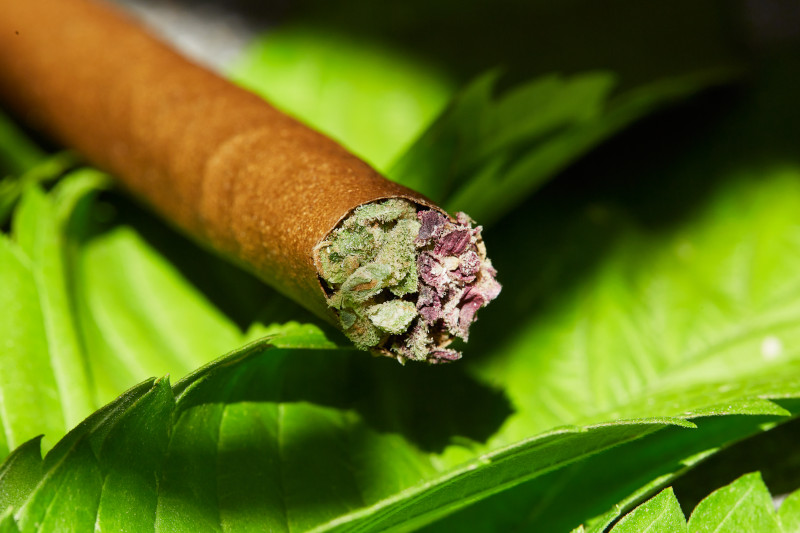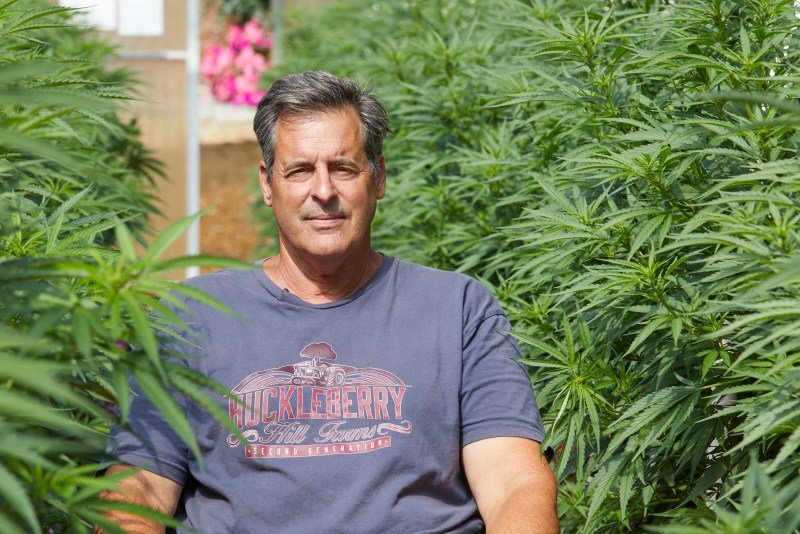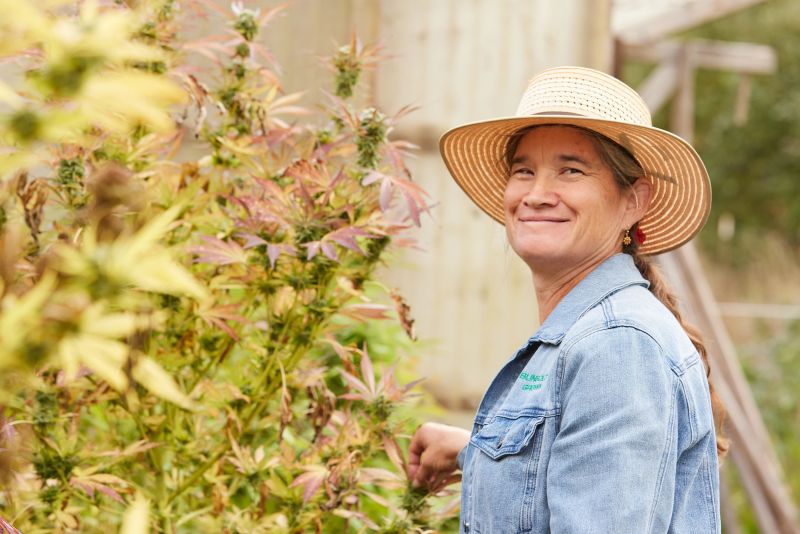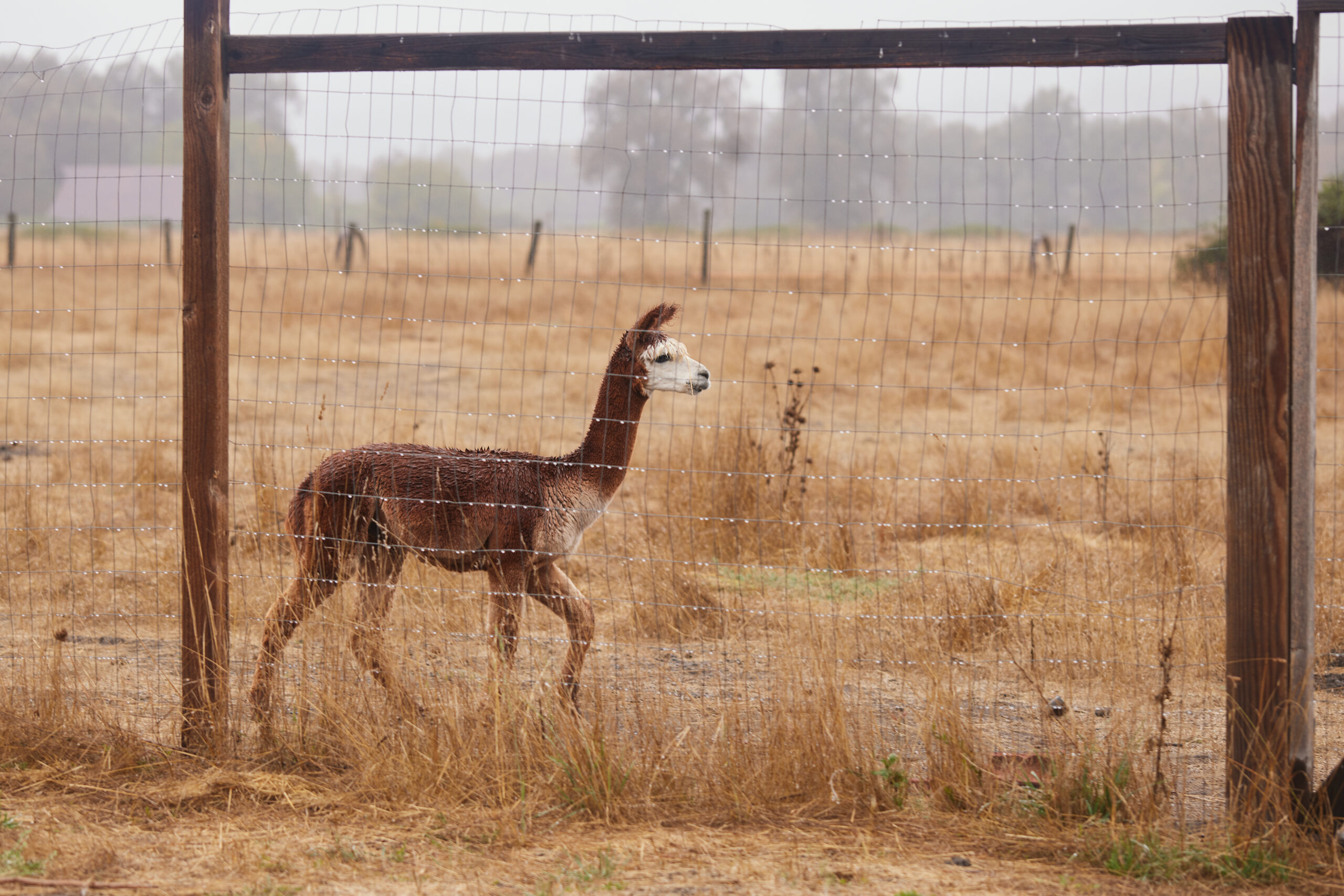Culture & industry
Federal Rescheduling Of Marijuana Could Lead To Cascade Of State-Level Changes
Published
1 year agoon
By
admin
If the Drug Enforcement Administration (DEA) reschedules marijuana to Schedule III of the Controlled Substances Act (CSA), experts say the change would not only have big implications for cannabis at the federal level, but could also cause series of legal adjustments in states.
As the result of so-called “trigger laws,” most U.S. states would either automatically reschedule marijuana to follow a change in its federal status or would begin a process to reclassify the substance. The ripple effect could impact politics, criminal justice and medical marijuana, among other issues.
Broadly, states fall into one of three categories in terms of their response to federal rescheduling. In slightly more than half, a federal scheduling change automatically triggers state-level rescheduling. In others, federal rescheduling would initiate a process requiring further action by the state legislature or a controlling state authority. And about 10 states don’t directly tie their scheduling decisions to drug’s federal status.
That’s according to Shawn Hauser, an attorney who co-chairs cannabis-focused law firm Vicente LLP’s hemp and cannabinoids department.
“The majority of states have a state scheduling procedure automatically triggered by a schedule change” at the federal level, she told Marijuana Moment. “The state is required under the state law to control the substance in accordance with state law, unless there’s an objection by the state regulatory body.”
In Texas, for example, rescheduling would happen automatically under the state’s trigger law. The commissioner of the Department of State Health Services would have 30 days after receiving notice of federal rescheduling to similarly reschedule, unless the commissioner objects.
Among other potential changes, the state-level shift could give Texans broader access to high-THC medical marijuana. Currently patients are limited to products containing no more than one percent THC.
In automatic trigger states where cannabis is currently illegal for all uses, such as Idaho, rescheduling would essentially clear a path for medical marijuana, at least in certain cases.
In states without an automatic rescheduling process, further action would be required from the state legislature or another controlling authority, Hauser said. For example, in Kansas, lawmakers have the ability to make scheduling changes with recommendations from the Board of Pharmacy.
Such state-level rescheduling efforts were on display after the Food and Drug Administration (FDA) granted approval to Epidiolex, an oral solution of CBD, in 2018. The federal government subsequently moved CBD to Schedule V of the CSA. After that, the maker of Epidiolex, then known as GW Pharmaceuticals (now Jazz Pharmaceuticals), went state-by-state to ensure states made similar scheduling changes at the state level.
Yet other states have laws specifying that action is discretionary. In Virginia, for example, state law says regulators may amend rules in order to match scheduling changes at the federal level, but no formal action is required.
As for what effects state-level rescheduling would have on residents, impacts would likely vary significantly based on how the state currently handles marijuana, Hauser said.
In states that already have legal medical or adult-use cannabis, she expects little will change.
“I think in those states it would be moot,” she said, “because those states have already chosen to regulate marijuana less restrictively than federal law, knowing that the federal government likely isn’t going to enforce and pursuant federal enforcement priorities.”
Hauser doubted that states with mature cannabis systems would roll back their laws to adhere to strict Schedule III restrictions. “I think states like Colorado and Washington and others, with mature regulatory models and a mature industry, I don’t think this will turn back the clock on them,” she said.
States without any legal form of marijuana, meanwhile, would likely see at least limited access for medical patients as the eventual result of rescheduling, with the drug regulated more akin to other Schedule III substances, such as ketamine and Tylenol with codeine—at least once additional FDA-approved cannabis medicines become available. The process of FDA approval, however, could take years and require millions of dollars in research and application fees.
Beyond those formal legal changes, Hauser also expects broader state-level rescheduling to have a political impact by fueling the changing conversation around cannabis—among doctors, elected officials, law enforcement and others.
“As we’ve seen with the way it’s federally classified,” she said, “the way it’s classified at the state level colors how doctors look at it, how government officials look at it, how police look at it, parents—everyone.”
“Schedule III means it has an acknowledgment of medical use and lower potential for abuse,” she continued. “That’s going to make it a much different conversation with doctors and in health care and in conversations with government.”
In addition to helping facilitate broader reform around medical marijuana, Hauser said that perspective could also change how law enforcement handles cannabis cases. While she noted that most marijuana crimes are based on volume and not on the drug’s specific schedule, she said prosecutors and sentencing judges might nevertheless take into consideration marijuana’s lower schedule when processing cases.
“Viewing cannabis in the lens of Schedule I, it’s shaped prosecutors and it’s shaped judges,” she said.
The changes could also put further pressure on governors to pardon people with past cannabis convictions, especially for simple possession.
“When Biden made the announcement to reschedule cannabis, he also pardoned federal prisoners—which, there are a few—and directed state governors to do the same,” Hauser said. “Much of what needs to happen at the pardon level is at the states.”
Rescheduling at the state level would provide another opportunity.
Meanwhile, as DEA reviews the federal marijuana rescheduling recommendation from the U.S. Department of Health and Human Services (HHS), some opponents have attempted to scuttle the process.
Rep. Pete Sessions (R-TX), for one, filed a legislative amendment to block the Biden administration from rescheduling cannabis. The provision would prevent federal funds from being used to “deschedule, reschedule, or reclassify marihuana” under the Controlled Substances Act.
Sessions recently led a letter urging DEA to “reject” the top federal health agency’s recommendation to reschedule marijuana and instead keep it in the most restrictive category under the CSA.
In September, two Republican senators introduced a separate bill that would strip DEA of its rescheduling power, preventing all federal agencies from rescheduling cannabis without approval from Congress.
That same month, 14 GOP lawmakers sent a letter urging DEA to reject the marijuana rescheduling recommendation.
While marijuana rescheduling would not federally legalize access through current state-level medical cannabis programs, it would free up research into the plant and have significant implications for the marijuana industry.
Congressional lawmakers across party lines have applauded the top health agency’s recommendation. Some have described it as an important “step” on the path to federal legalization. Others have claimed credit for the move, pointing to their years of advocacy around marijuana reform.
Written by Ben Adlin for Marijuana Moment.
You may like
-


Karma Koala Podcast 247: Speaking with Dr. Natalie Corthésy senior lecturer university of West Indies & Enrico Bonadio professor of law City St George’s University of London about their forthcoming Edward Elgar title, “Intellectual Property and Cannabis”
-


MJBizCon offers speakers chance to share cannabis insights, shape industry
-


The Best Tariff Friendly Cocktails
-


Cannabis Consumers Are Being Hit By The Tariffs
-


The Best Tips To Update Your Wardrobe
-


Former New York Knick Iman Shumpert debuts ‘TSA Approved’ legal cannabis brand
Culture & industry
Huckleberry Hill Farms and the history of the Whitethorn Rose cannabis strain
Published
1 year agoon
March 12, 2024By
admin
In the heart of southern Humboldt lies Huckleberry Hill Farms, a legacy outdoor cannabis grow started by John Casali. Unlike many of the regulated farms that sprouted up in the wake of Prop 64, Huckleberry Hill stood through the war on drugs era, and its story is steeped in passion, struggle, and resilience. It also led to the creation of the award-winning Whitethorn Rose cannabis strain.
 Gina Coleman/Weedmaps
Gina Coleman/WeedmapsIn the late 1960s, Casali, a teenager then, was immersed in the art of cultivation, learning the process from his mother. “[She] was my guiding light. She taught me the tenderness required for plants to thrive,” he shared. But the harsh realities of the war on drugs cast a shadow over their beautiful farm life. “My parents decided to cease cultivation due to escalating law enforcement. They got afraid of the multiple helicopters in the air throughout the year, dropping guys down on wires and eradicating weed.”
“It was all I knew; it was all I wanted to do — cultivate and honor what my mom had taught me.” — John Casali
Casali remained rooted in his passion, but it would eventually lead to his arrest and 10-year prison sentence in 1996. “One morning, I woke up to 30 federal agents coming up my driveway. They held a nine-millimeter to my head, and for the next nine hours, they searched my place. A year and a half after that, they came back with an arrest warrant.”
 Gina Coleman/Weedmaps
Gina Coleman/WeedmapsHis arrest, considered one of the longest federal incarcerations for a non-violent cannabis offense, struck a harsh chord, especially for someone who’d never even received a speeding ticket before. And while serving time in prison, tragedy struck his family. His parents, who had been traveling and fishing for months aboard a commercial albacore boat, encountered a devastating accident, and Casali’s mother tragically passed away. He recalled this period as one of the most challenging phases of his incarceration. “Those years tested my spirit, but the community’s support kept me going.”
Casali was released in 2004, and he found himself in a changed landscape, one where attitudes toward cannabis had massively shifted — no more helicopters over properties. Still driven by his passion for cultivation, he resumed his cannabis journey and even received a symbolically powerful gift from a friend: a preserved plant cut that was used to breed the Whitethorn Rose strain, an honor and testament to him and his mother’s legacy.
 Gina Coleman/Weedmaps
Gina Coleman/WeedmapsThis genetic preservation — maintaining a strain for a decade — embodies an emotional journey where friendship, loyalty, and love for the craft transcend the bounds of time and adversity. Casali created this unique strain by crossing Paradise Punch and Lemon OG.
Paradise Punch had been borne from his mother’s collaboration and was crafted for its early harvesting properties, allowing it to avoid possible mold due to October rains. The Lemon OG was a gift from a friend; combining the two was a convergence of heritage and camaraderie. With time, the strain gained the notoriety it so rightly deserved.
Whitethorn Rose, a strain forged during the war on drugs, now blossoms in a reformed era. It’s a symbol of endurance, community resilience, and triumph.
Moreover, testing by Columbia University in New York revealed the specific complexity of Whitethorn Rose. It boasts over 60 different terpenes and a staggering 444 cannabinoids. One such rare terpene found in this strain is selinadiene, which carries potential therapeutic properties.
Its emergence in the regulated folds of California’s cannabis market is due to its persistence and the unbreakable spirit that defines Huckleberry Hill Farms. Collaborations with Belle, Frenchy’s Cannoli apprentice from Heritage Mendocino, amplified its presence, leading to multiple Emerald Cup wins. This year, over 90% of the farm is devoted to cultivating Whitethorn Rose.
 Gina Coleman/Weedmaps
Gina Coleman/WeedmapsThe journey from cultivating alongside his mother in the late ’60s to overcoming incarceration and emerging stronger, determined to honor his roots, defines John Casali’s personality. Huckleberry Hill Farms is inspirational and deeply rooted in honesty, community, and an unquestionable passion for sun-grown cannabis.
Huckleberry Hills Farms is getting ready to hit California’s market, and you must try the amazing Whitethorn Rose strain. This cultivar has a remarkable history and a uniquely exotic floral flavor, making it a distinctive cultivar worth experiencing.
The post Huckleberry Hill Farms and the history of the Whitethorn Rose cannabis strain appeared first on Weedmaps News.
Culture & industry
Terroir and tradition: growing craft cannabis and the art of dry farming at Sunboldt Grown
Published
1 year agoon
March 3, 2024By
admin
When cruising down the Avenue of the Giants in Humboldt County, one might not realize there’s a hidden gem for cannabis enthusiasts just around the bend. Nestled along the Eel River in the heart of the Emerald Triangle lies Holmes Flat, a picturesque locale surrounded by towering Redwoods. The scenery? Simply breathtaking, drawing visitors in with its lush, fertile ambiance.
There, you’ll find Sunboldt Grown and its founder, Sunshine Cereceda, a local legend with soil under her nails and a heart as expansive as the California sky.
 Gina Coleman/Weedmaps
Gina Coleman/WeedmapsBorn in San Luis Obispo and raised in Humboldt since the age of seven, Cereceda grew up amidst the wilderness near Garberville in a community of activists and artists dedicated to preserving the region’s majestic trees. Tending to a garden since she was knee-high, she credits her mother’s green thumb for instilling in her a deep love for organic cannabis cultivation.
The challenges of craft cannabis in a commercial world
Her journey to becoming an Original Gardener is rooted in her upbringing within Humboldt’s activist community, where she formed deep connections to the land. She sold her first pound of weed at 14 years old in order to finance her education, which led to her developing her expertise through years of hard work and dedication. To this day, Cereceda’s OG status persists.
 Gina Coleman/Weedmaps
Gina Coleman/WeedmapsHowever, the shift from the underground market to the passing of Proposition 215 in 1996 and Proposition 64 in 2016 brought about major changes, turning her world upside down. What was once a dance with law enforcement became a tangled web of legalities and over-regulation. She grappled with the demands, yearning for authenticity amidst the new state of chaos. The transition from medical to adult use felt like a crash course in bureaucracy, leaving her fatigued and longing for the simplicity of yesteryears.
California’s legal landscape poses significant hurdles for craft farmers like Cereceda. Mandatory distribution and the absence of direct sales leave traditional farmers at the mercy of intermediaries, diluting the spirit of their craft.
 Gina Coleman/Weedmaps
Gina Coleman/Weedmaps“The beauty of craft does not sell itself,” she said, “We have a big disadvantage not being able to do direct [cannabis] sales … Compliance demands encroach upon precious time meant for nurturing our crops.” She dreams of a future where small farmers receive the support they need to thrive and where craft is cherished and celebrated in the marketplace.
Dry farming and the return to terroir
One of the characteristics that sets Cereceda apart from other growers is her cultivation techniques. She’s a farmer who doesn’t water her plants — a practice known as “dry farming.” It’s a centuries-old technique that involves cultivating crops without irrigation, relying solely on natural precipitation and soil moisture.
 Gina Coleman/Weedmaps
Gina Coleman/Weedmaps“Dry farming is about embracing the land and its natural rhythms,” she explained, “It’s a minimalist approach that allows terroir to shine through, bringing forth the true essence of the plant.” By eschewing irrigation and adopting low-intervention methods, dry farming conserves water and fosters a deeper connection between the farmer, the land, and the final product. “It isn’t suitable everywhere, but in regions like Humboldt, it’s worth pursuing … We avoid water addiction and enable plants to adapt naturally, resulting in a more resilient crop.”
Along with composting and strategic planting, Cereceda has honed her dry farming skills, growing cannabis that embodies the unique characteristics of Humboldt’s soil and climate.
 Gina Coleman/Weedmaps
Gina Coleman/WeedmapsAs the sun dipped below the horizon, it cast a warm glow over the rolling hills of Holmes Flat, where one thing was abundantly clear: Cereceda’s journey was far from over. From navigating the complexities of legalization to pioneering sustainable cultivation methods, she embodies the spirit of innovation and resilience that defines Humboldt’s cannabis culture.
Her focus on craftsmanship and terroir-driven cultivation is encapsulated in her products, growing craft cannabis that maintains the essence of Humboldt’s fertile soil and pristine climate.
The post Terroir and tradition: growing craft cannabis and the art of dry farming at Sunboldt Grown appeared first on Weedmaps News.
Culture & industry
Organic farming and regenerative agriculture
Published
1 year agoon
February 9, 2024By
admin
In the vibrant yet challenging landscape of California’s cannabis community, Sun Roots Farm is a rare gem situated in Covelo, California. Driving up its winding entrance will lead to a picturesque landscape, unveiling the incredible experience of visiting the farm’s gorgeous gardens. There, you’ll be greeted by towering cannabis plants reaching 12+ feet high and weighing an impressive 10 – 20 pounds each.
Founded by Forrest Gauder and Patricia Vargas, Sun Roots Farm is a testament to the resilience and integrity within the cannabis community.
By embracing a lifestyle around sustainability, they’ve created an enchanting, forest-like atmosphere with their approach, growing massive plants requiring a ladder for proper care. This landscape is common in Mendocino County, and due to dry weather, it makes for the perfect environment for growing colossal cannabis plants.
The founders’ vision of regeneration
Over the past 12 years, Gauder and Vargas have transformed Sun Roots Farm into their permanent residence. With its foundation rooted in regenerative agriculture, the couple not only cultivates cannabis plants but also tends to various vegetables, herbs, fruits, fungi, native medicinal plants, and perennial gardens.
To nourish their garden, they rely on contributions from their animals, with coops full of chickens and fields of alpacas serving as an exemplary model of regenerative agricultural practices. The farm aims to increase biodiversity and introduce closed-loop farming, where farmers recycle all organic material back into the soil and the farm. This system fosters a harmonious coexistence between the land and its inhabitants.
Exclusive seeds and strains
The farm takes pride in its commitment to exclusive seed cultivation, a distinctive approach that sets them apart. Gauder described the process: “We grow all our plants from seed yearly. From the year before, we’ll select pollen and put it on certain plants to make new [strains] — we’ll then collect those seeds. By the middle of February, we’ll crack open the chosen varieties, starting them in a greenhouse … and propagating them until they reach five-gallon pots.”
The decision to grow exclusively from seed is rooted in the farm’s philosophy of embracing genetic variability and maximizing plant vigor. “The reason behind growing from seed … is the genetic variability,” said Vargas. “We grow exclusively from seed. Local breeding has played a pivotal role in shaping plants that are finely adapted to the valley’s conditions, showcasing positive characteristics such as mold resistance, pest resistance, frost resilience, and more.”
Sun Roots Farm’s staple strain is Velvet Purps, bred locally over ten years ago. This strain descends from the valley and is made from various crosses by Gauder’s family and colleagues. Its origin begins with Jah Goo, crossbred with its brother T2 and Magic Bus, giving rise to a cultivar with impressive purple characteristics.
“The plant produces anthocyanins to protect itself, but it’s also purple,” explained Gauder. “You can find anthocyanins and all sorts of fruits and vegetables, too. It’s the pigment, the color. This compound has beneficial aspects when consumed by humans, like antioxidants, and it protects the plant. We had a bad frost a few years ago that destroyed a lot of gardens around here, but all our purple plants were just fine.”
Packed with trichomes and a captivating blend of berry and pine aromas, Velvet Purps luxuriously unfolds on the palate. This unique strain, locally bred and cultivated by Sun Roots Farm and a select few friends only, expresses a distinctive charm. Beyond its sensory delights, it delivers a tranquil and relaxing buzz, making it an ideal choice for evening consumption.
In a market saturated with options, the exclusivity of strains like Velvet Purps emphasizes the farm’s commitment to offering something truly exceptional.
A farm dedicated to sustainable practices
The farm is also Dragonfly Earth Medicine (DEM) certified. “To be DEM is to achieve a certification beyond organic through third-party verification,” explained Vargas, “It’s a community committed to intentional growth and the creation of closed-loop systems.”
Sun Roots Farm maximizes what the land naturally provides, whether it’s blackberry vines for tea or alpaca manure from their animals. “It’s similar to a homesteading lifestyle,” Vargas continued, “incorporating the cultivation of cannabis with an element of integrity into the product.” From closed-loop systems and water conservation to wildlife sanctuaries and companion planting, the farm is a testament to sustainable living techniques.
Vargas also emphasized the importance of observation and mindfulness in their approach, “Take a moment to observe before you go ahead and start harvesting or before you go ahead and start crunching all over the earth.” Gauder added, “As long as we keep stuff covered in the garden, magic always happens. So we’re feeding the bugs, which eat the material on the ground that feeds the plants. It’s a continual cycle of life, rebirth, death, life, rebirth, death.”
The farm extends its commitments beyond the cultivation season. After harvest, they break down plants, mulch with oak leaves, and cover them with hay, creating a winter blanket that transforms into a layer of beautiful topsoil come spring.
At Sun Roots Farm, a calming environment and sustainable living encourage a deeper connection to the products they make and the ones we consume. The farm is a reality where integrity, intention, and regenerative practices converge to create a sanctuary of sustainable cultivation in the heart of California.

Karma Koala Podcast 247: Speaking with Dr. Natalie Corthésy senior lecturer university of West Indies & Enrico Bonadio professor of law City St George’s University of London about their forthcoming Edward Elgar title, “Intellectual Property and Cannabis”

MJBizCon offers speakers chance to share cannabis insights, shape industry

The Best Tariff Friendly Cocktails

Cannabis Consumers Are Being Hit By The Tariffs

The Best Tips To Update Your Wardrobe

Former New York Knick Iman Shumpert debuts ‘TSA Approved’ legal cannabis brand

How New York pot pioneers made it to legal dispensary shelves

Scientists Now Think That One Compound in the Cannabis Plant Can Replace All Opiates

Vladimir Bautista is leading Happy Munkey’s legacy-to-legal takeover

Cannabis Can Help A Sore Throat

Distressed Cannabis Business Takeaways – Canna Law Blog™

United States: Alex Malyshev And Melinda Fellner Discuss The Intersection Of Tax And Cannabis In New Video Series – Part VI: Licensing (Video)

What you Need to Know

Drug Testing for Marijuana – The Joint Blog

NCIA Write About Their Equity Scholarship Program

It has been a wild news week – here’s how CBD and weed can help you relax

Cannabis, alcohol firm SNDL loses CA$372.4 million in 2022

A new April 20 cannabis contest includes a $40,000 purse

Your Go-To Source for Cannabis Logos and Designs

UArizona launches online cannabis compliance online course
Trending
-

 Cannabis News2 years ago
Cannabis News2 years agoDistressed Cannabis Business Takeaways – Canna Law Blog™
-

 One-Hit Wonders2 years ago
One-Hit Wonders2 years agoUnited States: Alex Malyshev And Melinda Fellner Discuss The Intersection Of Tax And Cannabis In New Video Series – Part VI: Licensing (Video)
-

 Cannabis 1012 years ago
Cannabis 1012 years agoWhat you Need to Know
-

 drug testing1 year ago
drug testing1 year agoDrug Testing for Marijuana – The Joint Blog
-

 Education2 years ago
Education2 years agoNCIA Write About Their Equity Scholarship Program
-

 Cannabis2 years ago
Cannabis2 years agoIt has been a wild news week – here’s how CBD and weed can help you relax
-

 Marijuana Business Daily2 years ago
Marijuana Business Daily2 years agoCannabis, alcohol firm SNDL loses CA$372.4 million in 2022
-

 California2 years ago
California2 years agoA new April 20 cannabis contest includes a $40,000 purse



